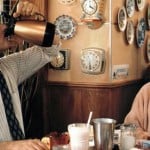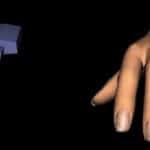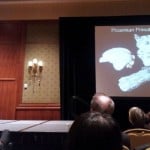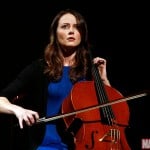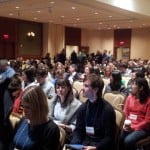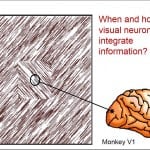Twitter is an increasingly powerful tool for information. In April, a hoax tweet from someone who hacked the Associated Press Twitter account caused the stock market to momentarily crash. Traders were swayed by a single false tweet about a terrorist attack on the White House. The incident begs the question of how we evaluate information […]
Sweet! Taste Metaphors Elicit More Emotion Than Literal Phrases
“That it will never come again is what makes life so sweet.” – Emily Dickinson Poets have long known that metaphors can elevate words to higher level. Now scientists know part of the reason why: A new study suggests that reading metaphors, specifically those with words associated with taste, recruits areas of the brain associated […]
Nothing Really Matters: Disbelief in Free Will Makes Us Care Less About Mistakes
In one of my favorite movies, Groundhog Day, Bill Murray’s character eventually gets so frustrated with the inevitability of living the same day again and again that he stops caring. With his fate seemingly sealed, he no longer worries about his actions. It makes sense that, faced with no control over our lives, we may […]
Copy That: When We’re More Likely to Imitate People Than Robots
When we are around different people, our behavior changes. Some of it is intentional – like talking about things you have in common – but much of it happens spontaneously without us even realizing it, such as folding your arms or scratching your nose when others do the same. But what about around robotic or […]
Unraveling the Motor Movements That Connect All Primates
Q&A with Jon Kaas Grasping, reaching, climbing – these are just some of the basic instinctive behaviors that we see even in babies. While these movements are not uniquely human, how they unfold neurologically is unique to primates. All primates have these motor behaviors, or “motor primitives,” and they all occur in similar ways across […]
It’s on the Tip of My Tongue: What Happens When We Can’t Remember a Name
It just happened to me the other day: I was watching Marvel’s Agents of S.H.I.E.L.D. and there was a new guest star; I turned to my husband and said – “Oh I remember her – she was in ‘Angel’ and the new ‘Much Ado About Nothing’…Amy something or other….” And then I drove myself crazy […]
CNS 2014 In the News
Here are highlights of news coverage of science presented at CNS 2014 in Boston (also check out our blog coverage): last updated April 21, 2014 The Tragic Story of How Einstein’s Brain Was Stolen and Wasn’t Even Special, National Geographic, April 21, 2014 Naps Help Infants Learn, Medical Xpress, April 17, 2014 Looking at how a […]
Why Do People, But Not Cameras, Consciously See?
CNS 2014 Blog Does a camera have consciousness? Well, of course not. But the camera serves as a good starting point for understanding some key features of the human visual system that enable us to have conscious awareness of what we see, as explained Victor Lamme of the University of Amsterdam in a symposium on consciousness […]
Music and Memories Bound in the Brain: People’s Choice Award Winning Posters
CNS 2014 Blog Every time I hear “Let My Love Open the Door to Your Heart” by Pete Townshend, I am instantly transported to my sister’s wedding – and it’s not just the memory of the song: I remember little details that I would otherwise never think about again, such as the colors of the […]
From Learning in Infancy to Planning Ahead in Adulthood: Sleep’s Vital Role for Memory
CNS 2014 Press Release Boston – April 8, 2014 – Babies and young children make giant developmental leaps all of the time. Sometimes, it seems, even overnight they figure out how to recognize certain shapes or what the word “no” means no matter who says it. It turns out that making those leaps could be […]



